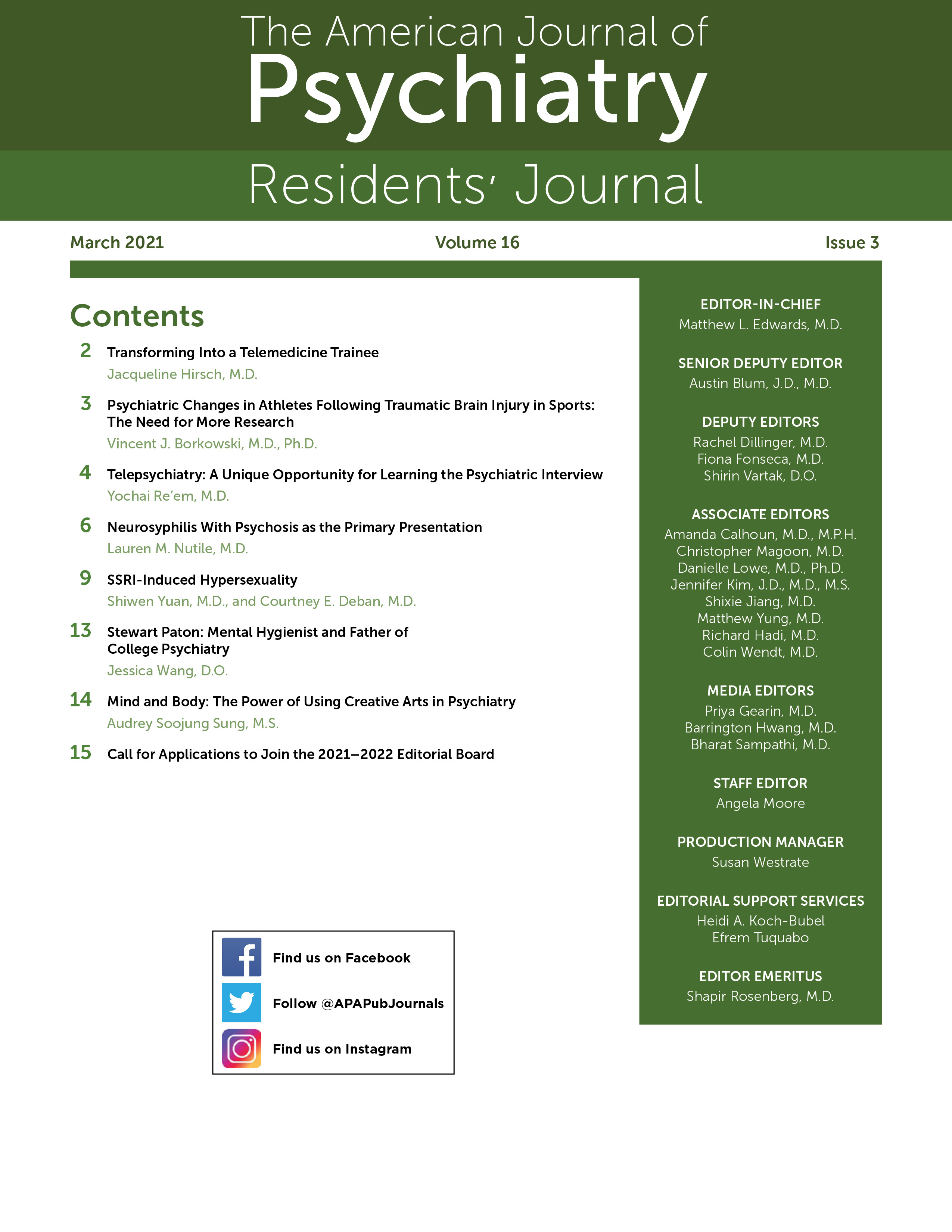In my third year of psychiatry residency training, I transformed from a general outpatient practitioner into a telemedicine trainee. Early on in the COVID-19 pandemic, I attempted to match my patients' varied access to technology with the limitations of my own technological skills to continue patient care from my home. This essay explores some insights learned from COVID-19 telemedicine that will inform our future outpatient practice as trainees.
The transition from face-to-face to video or telephone patient encounters has presented new challenges in obtaining clinical data. This became apparent during a telephone encounter with a patient who could not access a video platform. This patient, who has a history of impulsive self-injurious behavior and who is at high risk of suicide, told me that she was feeling depressed. I asked her about her symptoms and made tentative decisions about medical treatment, but without visual contact, it all seemed limited. I was worried about her and felt unsure of my clinical decision making without a visual exam. I could not see whether her shoulders folded in toward her chest while she spoke softly, or if she had showered or gotten dressed. I was unsure if there were any new self-inflicted wounds on her skin. I could not rely on my own physical tools of leaning forward gently with open palms to express empathy or finding her wandering eyes to remind her of my presence. Instead, I offered an empathetic voice and obtained more targeted data through precise questions. Although it was difficult to assess her symptoms, she was amenable to a medication dosage increase and close outpatient follow-up. For this patient and for other encounters, I became more aware of the information lost over a telephone or video encounter and how it affected clinical decision making. In the future, clinicians must find new ways of obtaining and conveying data during telephone and video encounters to improve patient care.
My clinical decision making in the COVID-19 pandemic became more personalized and nuanced. Another patient reported that she had recently developed new symptoms, which raised concerns about mania. Pre-COVID, I would not have hesitated to recommend hospitalization to treat her mania, pursuing the fastest and most efficient route to recovery. In the pandemic, however, it is more critical than before to consider a patient's unique biopsychosocial factors when assessing the need for hospitalization or identifying less restrictive alternatives. She cared for several younger family members and her own infant, and she remained physically close to her elderly parents, who had chronic medical conditions. She was well enough to participate in treatment, and with her family's help we were able to make immediate medication changes at home. Two days later, she reported that she was now sleeping and remained safe. Patient-centered care continues to be important during this pandemic, and dispositional decisions should be more personalized and cautious, as this one needed to be.
Becoming a telemedicine trainee during the COVID-19 pandemic has been both a difficult and rewarding experience. In practicing telemedicine, we as residents became more astute clinicians, and our patient care became more nuanced and personalized. Although telemedicine challenges the way we assess patients, it also allows for greater patient outreach to vulnerable populations with socioeconomic obstacles to accessing care. There remains much to be learned from telemedicine in the time of COVID, and perhaps these insights extend beyond this pandemic and can improve the future of psychiatry.
